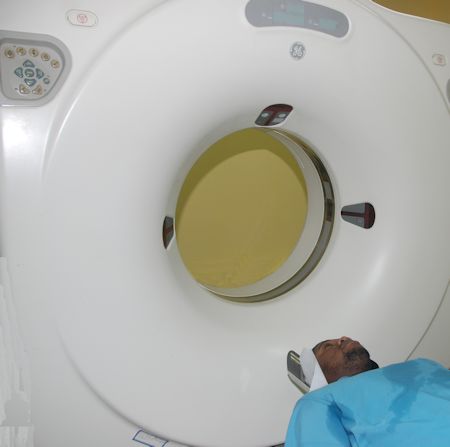When a CT Scan is indicated

CT scanning is useful to get a very detailed 3-D image of certain parts of the body, such as soft tissues, the pelvis, blood vessels, the lungs, the brain, abdomen, and bones.
It is often the preferred method of diagnosing many cancers, such as liver, lung, and pancreatic cancers. The image allows a doctor to confirm the presence of a tumor. The tumor's size can be measured, plus its exact location, as well as to determine how much the tumor has affected nearby tissue.
A scan of the head can provide the doctor with important information about the brain - he/she may want to know whether there is any bleeding, swelling of the arteries, or tumors.
A CT scan will tell the doctor whether the patient has a tumor in his/her abdomen, and whether any internal organs in that area are swollen or inflamed. It will reveal whether there are lacerations of the spleen, kidneys or liver.
As a CT scan can detect abnormal tissue it is a useful device for planning areas for radiotherapy and biopsies.
A CT scan can also provide valuable data on the patient's vascular condition. Vascular refers to blood flow. Many vascular conditions can lead to stroke, kidney failure, and even death. It can help a doctor assess bone diseases, bone density, and the state of the patient's spine.
A CT scan can reveal vital data about injuries to the patient's hands, feet and other skeletal information. |

CT Scanning at Calder Hall Medical Centre
|


![]() (868) 660 7873 or
(868) 660 7873 or ![]() (868) 639 8516
(868) 639 8516
